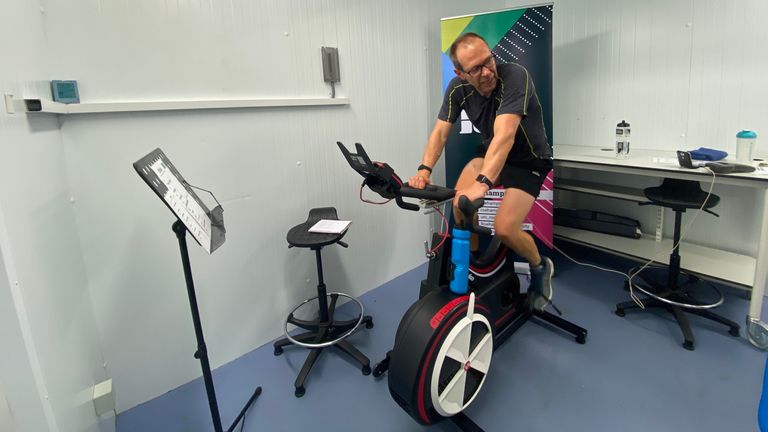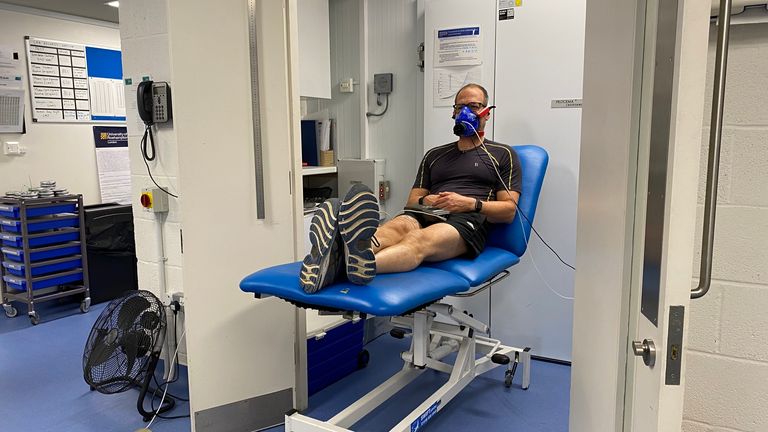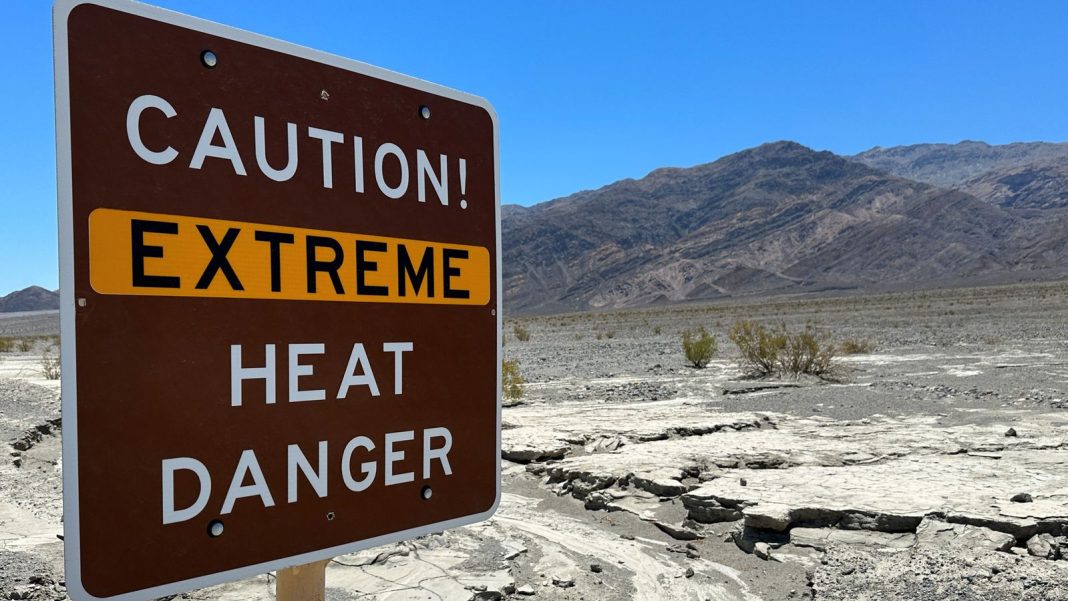I’m wired up and covered in sensors. Guinea pig 16 in a study of how heat impacts the human body.
It’s 50C in the heated “climate chamber” at the University of Roehampton in west London. The air immediately catches in my throat, my skin prickles.
And this is only marginally above the European temperature record of 48.8C.
Heatwave latest: Follow our blog for the latest world weather news
In the heat chamber
For an hour I have to lie still while scientists track my physiological response.
My heart rate rises steadily from 57 to 79 beats a minute.
It’s pumping harder to compensate for a drop in my blood pressure.
Chris Wolf is the scientist running the study. He tells me my body is trying to shed heat by opening up blood vessels in my skin.
“This is all linked to trying to keep yourself cool,” he said.
“If you’ve ever looked down on that hot day and seen that hot, flushed skin, that’s our blood vessels dilating or widening.
“The body’s trying to increase blood flow to the surface of the skin and increase the amount of heat we can lose.”
So far so good. I’m not sweating too much and the rectal probe monitoring the temperature deep inside my body shows only a small rise.
But then I jump on an exercise bike to simulate activity in a heatwave.

The pace is steady, nothing extraordinary. But my heart rate quickly hits 170 and millions of sweat glands try to cool me down.
It doesn’t work. My body temperature soars more than 1.5C, passing 38.6C after 20 minutes on the bike.
That’s the kind of temperature you reach with a high fever.
And it keeps climbing, even after I escape the heat of the chamber.
Even for healthy people, activity in high temperatures can be dangerous.
A road worker in Italy is believed to have died as a result of the current heatwave.

But generally heat is a silent killer. It’s only weeks later when statisticians look back that they see a steep rise in excess deaths – more than 61,000 of them in Europe last summer.
Some of those are people with cardiovascular disease, unable to cope with the additional strain on their hearts.
But older people make up most of the deaths. Their bodies don’t respond quickly enough to heat and they can’t keep cool.
Read more:
How Europe’s heatwave is impacting Spain, Italy, and other popular holiday destinations
British holidaymakers are changing their plans as temperatures surge
Workers pouring with sweat in blistering Italian heatwave – but they have little choice
Professor Lewis Halsey, an environmental physiologist at the University, explained what actually happens as the body’s temperature builds.
“Proteins start to fall apart and stop working so well, nerve impulses through the body don’t work so well, and biochemical reactions become sub-optimal.
“So the organs in the body function less well.
“And if that happens too much it can be fatal.”
This content is provided by Spreaker, which may be using cookies and other technologies.
To show you this content, we need your permission to use cookies.
You can use the buttons below to amend your preferences to enable Spreaker cookies or to allow those cookies just once.
You can change your settings at any time via the Privacy Options.
Unfortunately we have been unable to verify if you have consented to Spreaker cookies.
To view this content you can use the button below to allow Spreaker cookies for this session only.
Click to subscribe to the Sky News Daily wherever you get your podcasts
I’m not in the danger zone, but I was only exposed to extreme temperatures for a couple of hours.
People in southern Europe and the US have been living it for days.
And their bodies will be severely tested.







